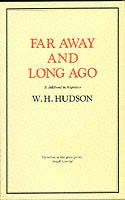So Pa threw a kind of poetry party for his brother Ra, who’s back home for a visit after more years than anybody can count, and the above is what he called it. Ra protests he isn’t a poet, though I suspect otherwise. In the grand scheme of things this may be important, but on the day it didn’t seem to matter because there was, if anything, a superfluity of poets foregathered to read their own stuff and listen to others’. I was there too, with a poem of my own, but we’ll come to that later.
The setup was pretty close to that of the Open Mic sessions organized by Jehan, Indi and Tracy in 2008 and 2009: people told their friends, who told Facebook, and everyone who had a poem to read or just wanted to listen turned up at the venue. There were microphones and a voice PA and everyone took turns.
Most of it was pretty bad, of course. This kind of amateur poetry is always bad in the same way, displaying the same faults no matter who has written it. I suppose you need talent to make even your blunders original. Real poets write about everything under the sun, but bad amateur poets always go for the same clumsy, ostentatiously high-minded cant. If it isn’t a meditation on life or love or mortality we're subjected to, then it's an intense disquisition on metaphysics or an account of the depthless, pathless gloom pervading the poet’s soul. Why do people, especially young people, feel obliged to come over all high-minded when they’re writing poetry? Homer didn’t, Virgil didn’t, Dante didn’t, at least not all the time, and as for Shakespeare, his mind was stuck in a holding pattern at crotch level. I suppose it was the Romantics who gave people the excuse, especially Wordsworth and that damned scoundrel Keats. Because it is an excuse, you know; it’s far easier to make rhythms and rhymes out of vague but emotive phrases and high-sounding but meaningless sentiments than it is to write a poem about a house, or a pair of knickers, or a visit to the dentist. I wish more people would write poems about verandas and dental cement and gussets. Especially gussets. I’d read it, especially if they put a scratch-'n'-sniff panel in the margin.
The poems presented weren’t all bad, I’m happy to say. An elderly chap called Chris (I’ve known him for years but we’ve never yet gotten on last-name terms with each other) read, or rather performed, a couple of his poems. Apparently he was discovered years ago by Ra in Canada, rapping his stanzas to an audience of trade unionists. This sounds entirely in character; Chris is a performance poet. His lines, though reasonably well crafted and often good enough to make you sit up and take notice, wouldn’t be particularly remarkable on the page; it’s the presentation that does it. Kudos to him, all the same; his two poems, half-sung, half-recited, earned the loudest applause of the day. He deserved it, too.
There was some other goodish stuff. Brandi offered us a piece, Byronesque in conception if not in craft, about a young woman being deflowered by a viper. I had to suppress a few involuntary giggles during the torrid bits, and as usual he ruined line after potentially first-rate line with grammatical crappiness, loutish word choice or just plain bad taste, but at least the topic was welcome for being unexpected, if not exactly original. It’s a pity Brandi’s craft and taste aren’t up to the quality of his imagination – but those are curable faults. Only I wish he’d hurry up and cure them. Of course, good taste isn’t exactly the point of Brandi’s stuff. I was disappointed, though, when the snake ended up using his tail to do the dirty deed. Surely any self-respecting reptile ravisher goes in head-first?
Then there was Indi, everybody’s favourite enfant terrible, who read out a typically thoughtful and well-crafted piece of prose. Sadly, I don’t remember any of it, or even what it was about, which is rather unfair to him. My mind may have been elsewhere at the time, probably on my own poem, which I was preparing to read as soon as he stepped down.
Before I could do so, however, I found myself barged aside by an earnest young fellow who had read twice already, and would end up reading more than anyone else that day – a series of deep meditations and soulful laments for his own sorry life and hapless condition. I have never met anyone so keen to share his pain with others as this chap was; the gloom was absolutely unremitting. At one point he even had the cheek to read us a poem explaining why all his other poems were so full of misery. His antics were so tedious and exhausting they amounted to an imposition upon us, which is why I feel justified in offering him the following unsolicited criticism: remember the boy who cried wolf, kid. And if you can’t write about anything but your miserable self, quit writing, because you aren’t very interesting.
About my own offering, it's worth mentioning only that it was one-time affair. It will never be published, nor even read again if I can help it. Not because I think it’s bad – though it didn't go down especially well at the reading – but because in it I poke fun at matters deep and sacred to the heart of a very close, very large and very heavily muscled friend of mine. Out of respect for his feelings, and my skin, I shall say no more.
Even though I wasn’t feeling very well that Saturday, I must say I enjoyed myself at the STBDPS. It’s good to know there are so many people out there who are serious about writing poetry; and if they don’t all end up becoming real poets, well, them’s the breaks. By their very presence they raise the game for others, and that, too, is a service to the Muse. Besides, 'tis better to have rhymed and wrecked than never to have rhymed at all.
 Whistleblowing is good when actual wrong has been done, but governments and businesses cannot function without privacy any more than individuals or families can. When people don't feel comfortable talking off the record, or when they fear they might be endangered by it, they stop talking, and mutual misunderstanding and suspicion ensue.
Whistleblowing is good when actual wrong has been done, but governments and businesses cannot function without privacy any more than individuals or families can. When people don't feel comfortable talking off the record, or when they fear they might be endangered by it, they stop talking, and mutual misunderstanding and suspicion ensue.











